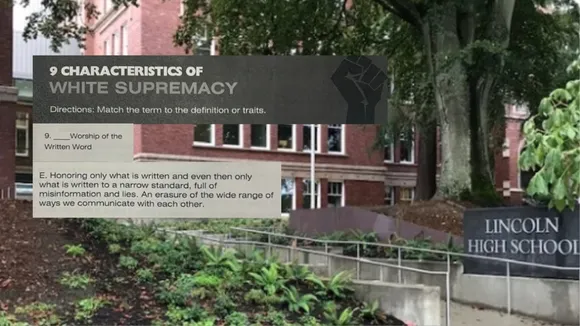

In the heart of Seattle, a declaration of a ‘homosexual intifada’ in support of Hamas has ignited a firestorm of controversy, challenging the boundaries of political activism, LGBT rights, and community solidarity. This bold statement, juxtaposing the struggle for LGBT freedoms with the Palestinian cause, has opened a Pandora’s box of criticism, confusion, and confrontation among activists, academics, and communities at large.
A Clash of Ideals
The term ‘intifada,’ historically linked to the Palestinian uprising against Israeli occupation, is now being wielded by LGBT activists in Seattle to symbolize their fight for rights and recognition. However, this alignment with the pro-Hamas faction has stirred a deep controversy, given Hamas’s notorious record of hostility towards the LGBT community. Under Hamas rule in Gaza, being openly gay is nothing short of a perilous existence, fraught with arrests, torture, and even extrajudicial killings. In stark contrast, many gay Palestinians have sought refuge in Israel, fleeing the oppressive and dangerous conditions in Gaza.
The paradox of supporting an entity that fundamentally opposes one’s very existence has not gone unnoticed. Critics argue that the Seattle activists’ campaign, while seeking to highlight the plight of Palestinians, glaringly overlooks the severe discrimination and dangers faced by LGBT individuals under Hamas’s governance. This incongruence raises profound questions about the motivations behind such messaging and the implications for both the LGBT and Jewish communities.
Academic Endorsement and Criticism
Amidst the uproar, some academics, like Swarthmore professor Sa’ed Atshan, have come forward to advocate for ‘queer solidarity’ with Palestinians, downplaying the severity of homophobia in Palestinian society. Atshan’s stance, which also points fingers at Jews for allegedly exacerbating the plight of LGBT Palestinians, has only added fuel to the fire. This narrative, however, is challenged by harrowing accounts of LGBT individuals in Gaza, who live under constant threat of death and are compelled to hide their true selves to survive. The situation underscores a complex web of political activism entangled with human rights, where the lines between allyship and antipathy blur.
The controversy has also shed light on the broader issue of how pro-Hamas activists utilize their platform. Instead of addressing the violence and discrimination faced by the LGBT community in Gaza, they have been accused of using their advocacy to attack Jews defending Israel, thereby diverting attention from Hamas’s anti-LGBT stance.
Unraveling the Tapestry of Motives
The Seattle ‘homosexual intifada’ serves as a poignant reminder of the intricate and often conflicting layers of political activism. It exposes the fraught terrain where the fight for one form of justice seemingly comes at the expense of another, raising critical questions about the ethical and moral foundations of such movements. This situation highlights the need for a more nuanced and informed approach to activism, one that considers the full spectrum of human rights, without sacrificing the dignity and safety of one community for the sake of another.
In essence, the unfolding controversy in Seattle is more than just a clash of ideals; it is a reflection of the broader struggles and contradictions inherent in the fight for rights and recognition. As the debate rages on, it becomes increasingly clear that true solidarity requires a deep understanding and respect for all facets of human identity and oppression, transcending simplistic narratives and embracing the complexity of human experience.



